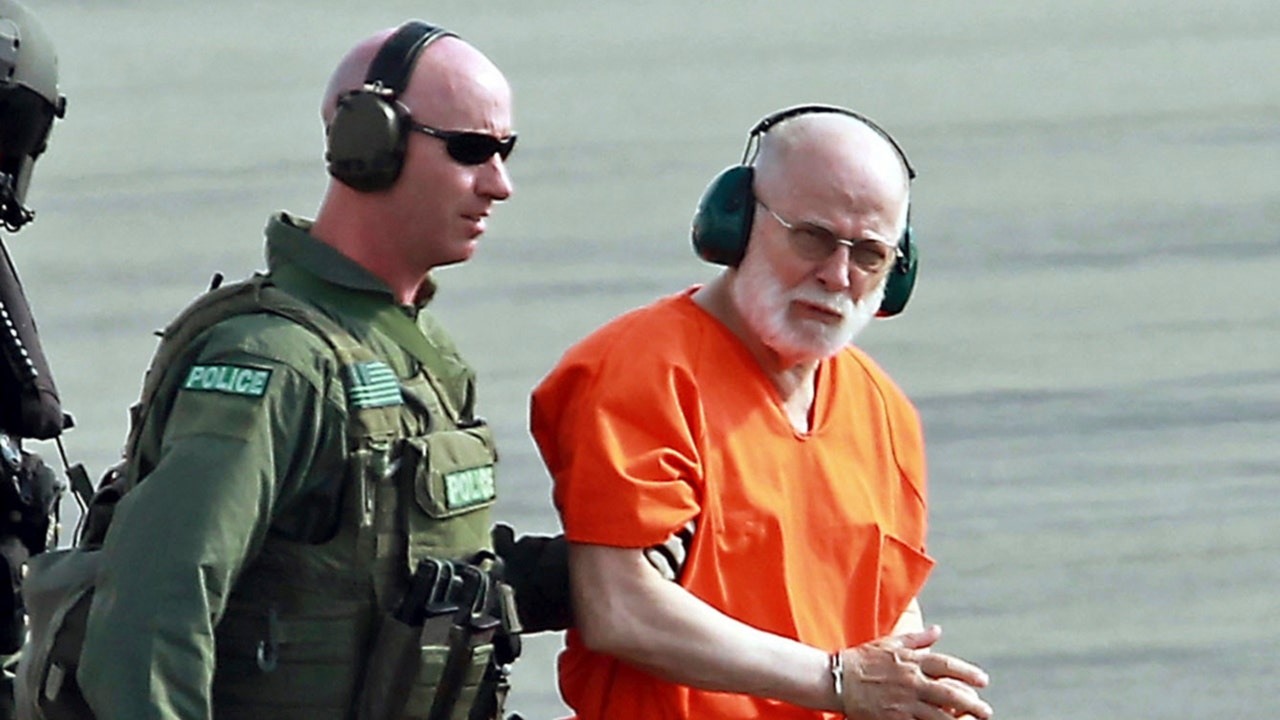As he prepares to deliver the State of the Union address on Thursday, President Biden faces four intractable political problems that loom as hazards to his re-election campaign.
Worries about his age, unease with his stewardship of the economy, frustration over his alliance with Israel during its war in Gaza and an openness to third-party and independent candidates have emerged as central reasons that his Democratic coalition appears a little smaller and less enthusiastic than it did in 2020.
Mr. Biden still has the spring, summer and fall to turn things around — and Democrats have won a series of elections in recent years by focusing their campaigns on abortion rights.
But combined, these political hurdles threaten his ability to make the case his aides have placed at the heart of his campaign strategy: making 2024 a binary choice between the president and his predecessor, former President Donald J. Trump.
“It’s very clearly a vibes election, not a math election, isn’t it?” said Tory Gavito, the president of Way to Win, a liberal advocacy group. Her organization warned last week that the “uncommitted” vote against Mr. Biden in Michigan’s primary election, which protested his Gaza policy, was “not something that should be ignored, taken lightly or dismissed as isolated to Michigan.” Indeed, “uncommitted” captured 19 percent of the vote in Minnesota on Tuesday.
Mr. Biden’s campaign has argued for months that his political standing will improve once voters recognize that the 2024 election will be a choice between him and Mr. Trump.
“President Biden is entering the general election from a position of strength and with the right ingredients to win,” said Lauren Hitt, a campaign spokeswoman. “Our base is uniquely motivated and unified by Roe and Donald Trump’s threats to our democracy.”
Here is a closer look at the four challenges:
Biden is navigating continued worries over his age.
Mr. Biden, now 81, has fended off such concerns since he announced his presidential campaign in 2019.
Last month, America watched as a special counsel called Mr. Biden a “well-meaning, elderly man with a poor memory.” A recent poll from The New York Times and Siena College found that 73 percent of all voters said he was too old to be an effective president.
What can Mr. Biden do?
“I think he should take a pill and become 40 years younger,” said Senator Bernie Sanders of Vermont, who at 82 is just over a year older than Mr. Biden. “And if he has that pill, I hope he shares it with me.”
In seriousness, some Democrats have pushed Mr. Biden to show voters that he remains up for the job.
Mr. Sanders expressed confidence, saying he expected Mr. Biden to run “a vigorous campaign” to sell his accomplishments and explain a second-term agenda. He said that in his own conversations with Mr. Biden, he had encouraged the president to emulate President Franklin Roosevelt’s 1936 campaign, which culminated in a second inaugural address in which he did not shy from the reality of the Great Depression and declared: “I see one-third of a nation ill-housed, ill-clad, ill-nourished.”
Mr. Biden’s allies in the most important battleground states have also sought to defend him from criticism and speculation about his future.
During a recent interview, Gov. Roy Cooper of North Carolina recalled being forced to persuade a local chief executive that yes, Mr. Biden would really be the Democratic nominee.
Gov. Tony Evers of Wisconsin, who is considering seeking a third term in 2026, when he will be 74, said he would aim to retire well before he reaches Mr. Biden’s age.
“If I told you I was going to run at age 82, I’d tell you, ‘That’s not going to happen,’” Mr. Evers said.
Israel’s war in Gaza has turned some Democrats against Biden.
The war in Gaza has alienated important parts of Mr. Biden’s winning 2020 coalition, including young voters, progressives and some Black voters.
The Biden campaign waved away the 13 percent of Democratic primary voters in Michigan who cast ballots for “uncommitted” as within the state’s historical norms.
But the percentage was much higher in Minnesota’s primary on Tuesday and only a touch lower in North Carolina, where there wasn’t an organized protest campaign. Another effort from left-wing groups in Washington State’s primary next week means that Mr. Biden will continue to face Democratic pushback over the war.
“He has been looking weak in this conflict because he’s not able to uphold what we said United States values are,” said Representative Pramila Jayapal of Washington State, the leader of the Congressional Progressive Caucus. “I did say this to the White House directly: I think we literally could lose this election to Donald Trump over this war.”
Ms. Jayapal and other Democrats argue that every day the conflict goes on is a day their party will struggle to push a message about how Mr. Biden is superior to Mr. Trump because voters angry about the war won’t listen to him about anything else.
Some progressive Democrats say that to win back support, Mr. Biden must go beyond calling for a cease-fire and end unconditional U.S. military aid to Israel.
“Just demanding a cease-fire would have worked a few months ago,” said Keith Ellison, the attorney general of Minnesota. “People are looking for a relational change because after 30,000 dead and however many who’ve been displaced, I think it’s like, look, we can’t go on like this. We cannot. The world can’t go on like this.”
Voters don’t credit Biden with improvements in the economy.
Economic indicators mostly point in the same direction. Inflation is cooling, consumer confidence is on the rise. Many Americans generally feel good about their own economic circumstances.
They just don’t think Mr. Biden had much to do with it and believe the overall economy is getting worse. Just 19 percent of those surveyed in the latest New York Times/Siena College poll thought the economy was better than it was four years ago — when Mr. Trump was in office — while 65 percent said it was now worse. Looking back just one year, 23 percent said the economy was now better, with 40 percent saying it was worse and 36 percent about the same.
“There’s a gap here,” said Gov. Phil Murphy of New Jersey, a Biden ally who has for months predicted that Mr. Biden will earn credit for an improved economy by this summer, just in time for the general election. “I’m not suggesting it’s going to be a magic-wand moment, but I think it is literally only a matter of time until the president gets the credit that he deserves.”
Mr. Biden has tried an array of measures to claim more credit faster. He has framed his domestic agenda as “Bidenomics,” a phrase that few in the high levels of his orbit embraced but has nonetheless occasionally persisted in the White House branding. Thursday’s speech presents Mr. Biden with one of his biggest stages of the year to brag about his accomplishments — something even erstwhile supporters say they need to hear him do more of.
Adrianne Shropshire, the executive director of BlackPAC, an African American political engagement organization, described leading a recent focus group in which participants were surprised to learn about legislation Mr. Biden had passed and how the economy had improved during his presidency.
“Someone said: ‘I didn’t know any of this stuff. Why are Democrats so bad at messaging?’” Ms. Shropshire said. “That’s a sentiment that is pretty widely felt.”
Third-party candidates could pose a real threat.
The Biden campaign has aimed to frame the 2024 election as a binary choice between the president and Mr. Trump. A problem with that strategy is that voters may have other options.
For months, Democrats worried that No Labels, the centrist group that claimed to have a $70 million war chest, would field a brand-name candidate. But with its top targets passing, Democratic worries about third-party and independent candidates have shifted to the prospect that Robert F. Kennedy Jr. could siphon votes away from Mr. Biden.
“Everybody in the Democratic coalition is worried about Kennedy,” said Matt Bennett, the co-founder of the centrist group Third Way, who has helped lead the party’s efforts to stop third-party and independent candidates.
Candidates like Mr. Kennedy, and to a lesser but still significant extent Cornel West and Jill Stein, could splinter the fragile coalition that elected Mr. Biden in 2020.
That year, Mr. Biden united left-wing Democrats with center-right Republicans who opposed the prospect of a second Trump term. But with many of those voters having soured on both major-party candidates, Democrats fear that more votes would come out of Mr. Biden’s column than Mr. Trump’s.
For the next few months, the fight will be over whether candidates like Mr. Kennedy and Mr. West qualify for the ballot in key battleground states. So far, Mr. West is on the ballot in Alaska, Oregon and South Carolina, and Mr. Kennedy is on the ballot in Utah. Late Tuesday, his campaign announced he had collected enough signatures to qualify for the ballot in Nevada, which would be his first battleground state.
“Third-party presidential candidates broadly are a big threat to the presidency,” said Rahna Epting, the executive director of MoveOn, the liberal activist group. “In this election, the result will be that they will swing the election toward Donald Trump, and this country cannot take another four years of him.”






